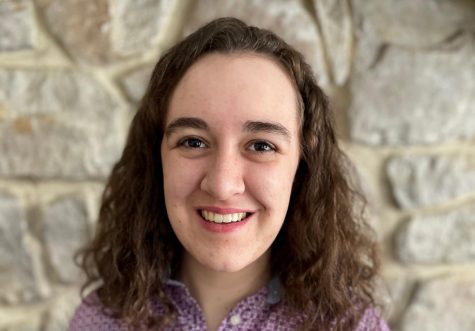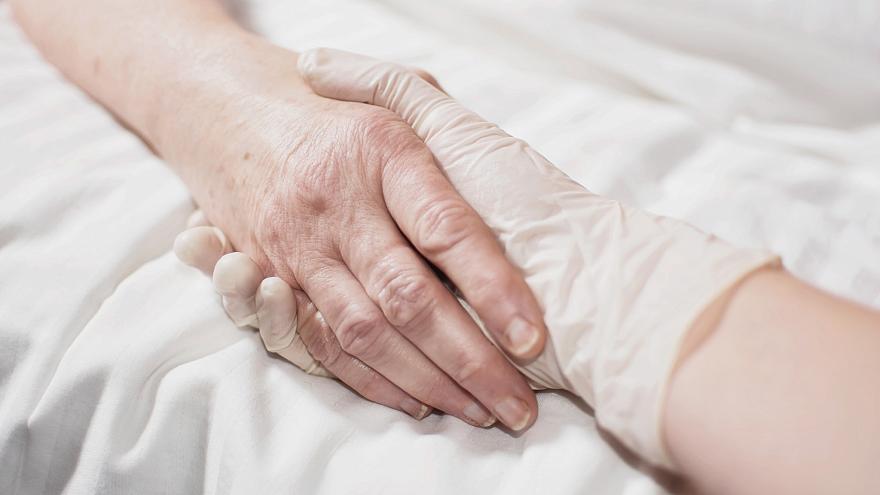Voluntary Euthanasia: Not Just a Hypothetical
“Death with dignity” is a synonym for voluntary euthanasia, showing that the right to die is an important right of patients. It is the practice of painlessly ending your life with the aid of a medical doctor. It requires informed consent from the person who wants to die, which distinguishes it from “involuntary euthanasia” — murder.
I never put much thought into it until Ema decided to fly to Switzerland to die.
Two years ago, my grandmother, Ema, took on a transatlantic flight to Switzerland so that she could legally end her life. Ema sought the services of Dignitas, a Swiss organization that offers its clients the ability to “die with dignity.”
Why Switzerland? Voluntary euthanasia was, at the time of Ema’s death, legal in seven U.S. states. However, every state required patients to be dying of terminal illnesses. Some even required their patients to have less than six months left to live. The problem was that Ema wasn’t dying. Her body was healthy and strong from her years as a winning senior triathlete. At the age of 77, her good physical health should have been a blessing. This blessing was thwarted when Ema developed Alzheimer’s.
The disease claimed almost everything she loved. Paranoia and confusion ruled her life. Ema, the strong, smart and fearless woman who rode motorcycles and went skinny-dipping, turned into a woman who was scared to walk the beach after sunset. My family watched her turn into a shell of the person she once was.
Ema never wanted to live like that. In her clearer moments, she broached the topic of voluntary euthanasia. She’d been in support of the idea for years, ever since she read the book “Me Before You.” Ema was certain that this was the end she wanted.
No one knows what to say when I bring up Ema. Most people offer their condolences. Some bring up their thoughts on the morality and legality of voluntary euthanasia. However, when I learned Ema was going to Switzerland, my concerns shifted from ethical to practical. I didn’t care whether it was right or wrong — I just wanted to know what I was supposed to say.
However, I know how not to talk about voluntary euthanasia. We shouldn’t treat it as a political issue; it goes beyond politics. We shouldn’t use it as an ethical case study, because it transcends any system of ethics. These theories and hypotheticals get us nowhere; they can offer no solutions to the practical concerns of this deeply personal issue.
Voluntary euthanasia isn’t just a scenario you read about for your Philosophical Ethics class. It isn’t just a political issue to be argued about on the debate stage. It’s something very real, personal and human. People who haven’t had firsthand experience often forget that and blunder into their arguments. Misconceptions run wild. One friend’s immediate reaction was to tell me that “euthanasia violates the Hippocratic Oath because it does harm.” I didn’t have the time to give him a thoughtful and reasonable response. I have one now:
It doesn’t violate the Hippocratic Oath. When people are continually suffering with no hope of relief, death is no longer harmful. People who seek out voluntary euthanasia have no cure for what ails them: terminal cancer, Alzheimer’s disease, complications from horrific accidents. They suffer harm every day; if they wish to end that harm, their only option is to end their lives. In such scenarios, death is a mercy.
It isn’t assisted suicide; in fact, it isn’t suicide at all. Suicide stems from desperation, sadness and hatred. Suicide is a horrible thing, and no place should ever allow suicidal people a legal exit. Thus, places like Dignitas have multiple safeguards to keep suicidal people from taking advantage of legal voluntary euthanasia, which they call “reasoned request and medical proof.”
To qualify, Ema needed an appointment booked months in advance, a personal letter explaining why she sought Dignitas’ services and multiple medical reports and notes written by doctors and psychologists.
It isn’t cold and unfeeling, and the doctors who carry it out are not monsters. I think people tend to imagine voluntary euthanasia the same as animal euthanasia: a cold metal examination table and a lethal syringe, or a hastily constructed tent on the side of a horse racetrack. Those images could not be further from the truth. Ema passed away in a yellow canopy bed, listening to her favorite artist, Harry Chapin, with her husband and children gathered around her.
Voluntary euthanasia is a strange process, and often people don’t know how to talk about it. I don’t claim to have the answers; two years later, many of my questions are still unanswered.
Lay politics aside for a moment and remember that everyone who chooses voluntary euthanasia is a human being, with a human family, who has lived a human life. Voluntary euthanasia is, at its core, a human issue. We will get nowhere if we continue to talk about it as though it is anything else.
Erica Weidner, FCRH ’22, is an English and political science major from Phoenixville, Penn.

Erica Weidner is a junior at Fordham College at Rose Hill, majoring in English and double minoring in political science and philosophy, and for the last...









































































































































































































Bradley Williams • Oct 31, 2019 at 12:36 pm
Consider that Yes 60% favor the concept but 95% reject legalizing euthanasia after they read the legislation and learn the extent of wrongful deaths allowed. This is based on 1,000’s of interviews.
Potential for abuse abounds with laws allowing euthanasia.
These laws do not assure a peaceful and rapid death. Induced premature deaths are neither peaceful nor rapid 25-72% of the time according to a study by Bill Gallerizzo.
The Oregon type death laws are promoted as “choice” for us individuals but are written to empower predatory corporations and others over our individual choices.
An extrapolation of Oregon statistics reveals that 17-21% of the participants are forced to satisfy their facilitators.
Examine the language of these death laws and dismiss the promotional sound bites.
Respectfully,
Bradley Williams
Care Giver